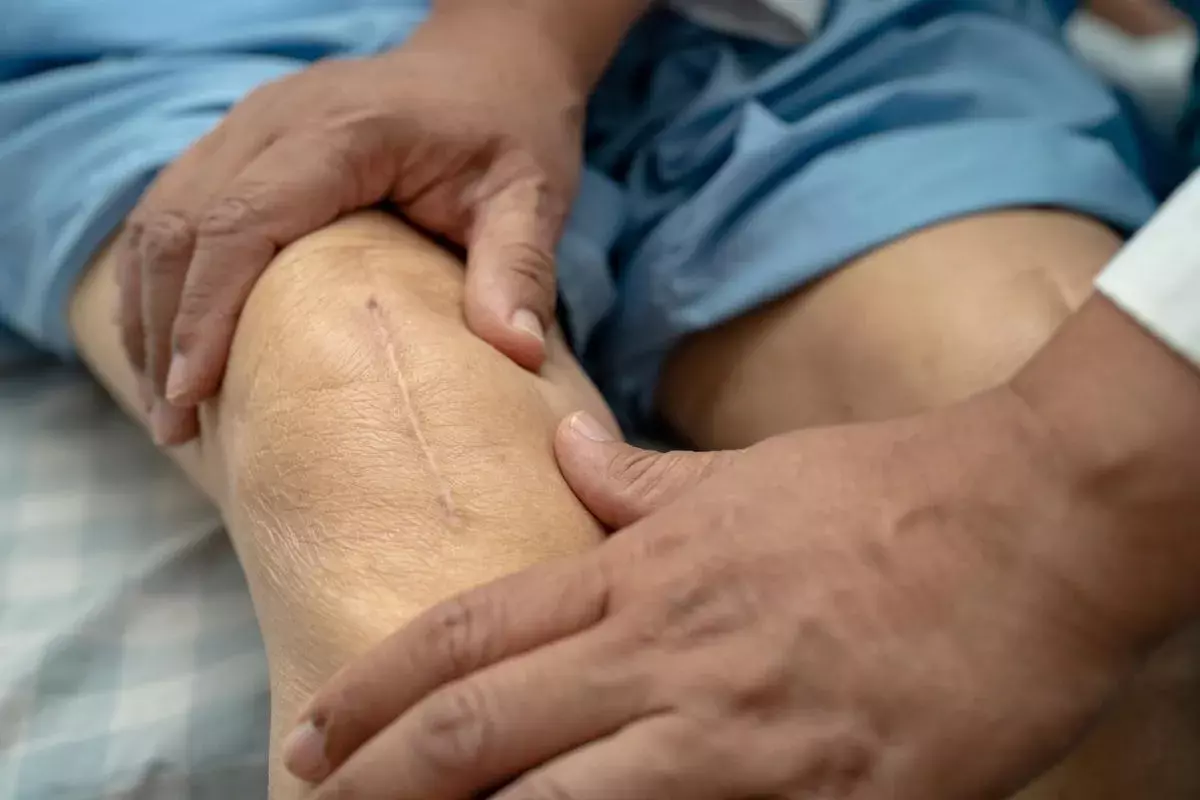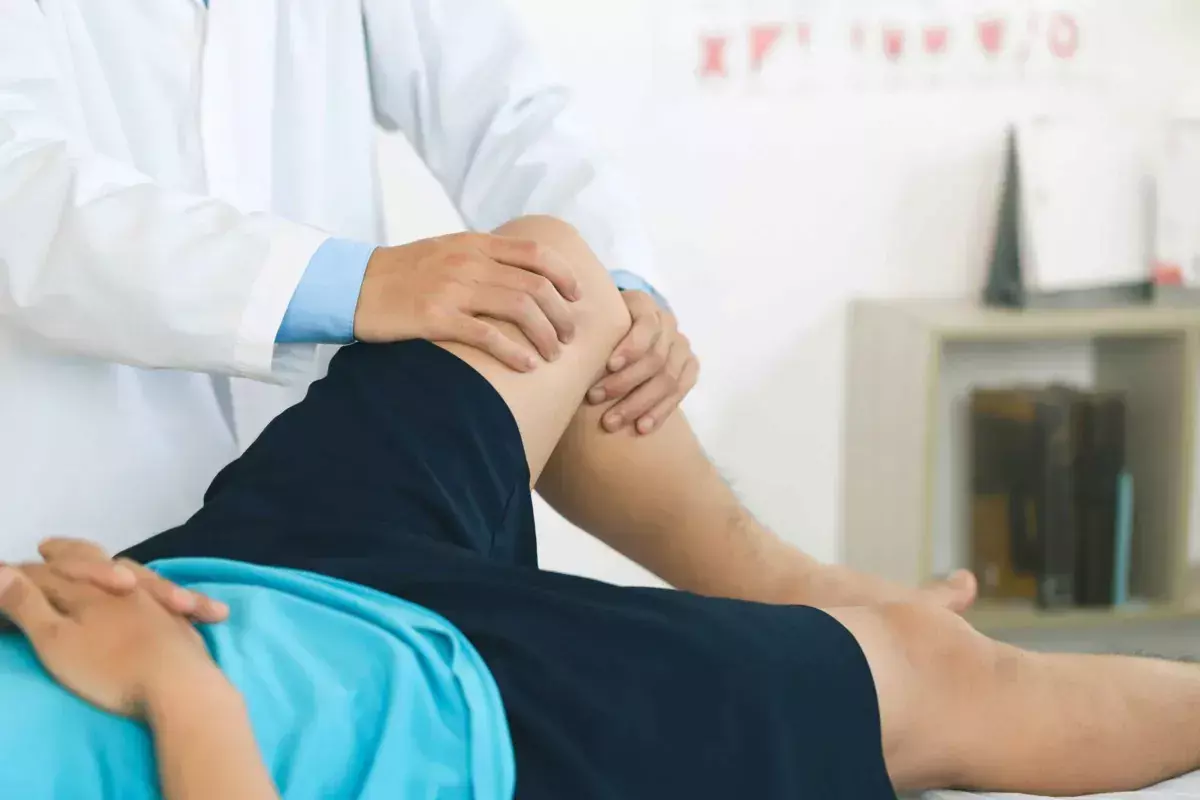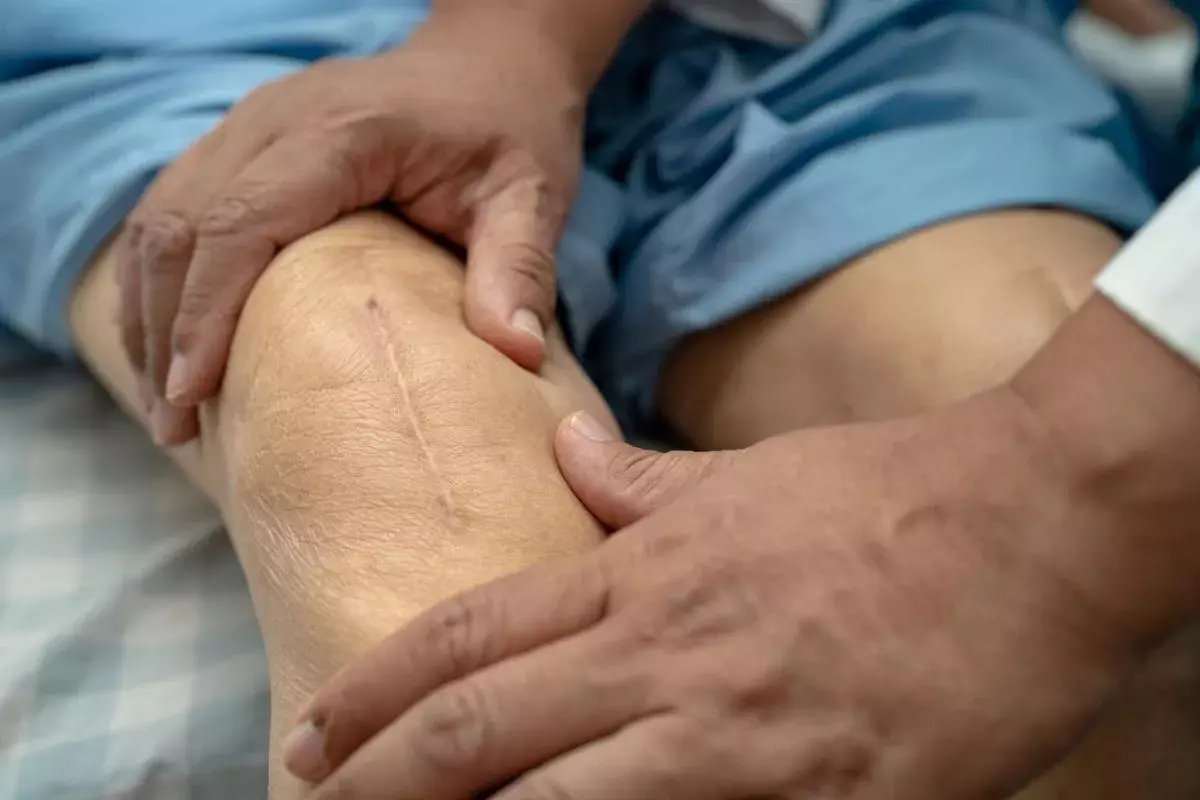What is the number one cancer symptom? Recognizing cancer signs early can greatly improve treatment success. Doctors say some symptoms of cancer show up more often than others.
This knowledge helps people get medical help fast if they notice strange symptoms. This could lead to catching cancer early and getting treatment sooner.
Key Takeaways
- Early spotting of cancer symptoms is key for good treatment.
- Anemia or bleeding can be a main symptom for some cancers, like GIST.
- Knowing the clinical features of cancer helps in quick diagnosis.
- Being on the lookout for cancer signs can improve health outcomes.
- It’s vital to see a doctor right away if you notice unusual symptoms.
Understanding Cancer and Its Manifestations

It’s key to know the signs of cancer early for treatment. Cancer starts with genetic changes that cause cells to grow out of control. This can lead to many signs and symptoms of cancer.
The Nature of Cancer Development
Cancer starts with genetic changes that mess up cell division. This leads to cells growing without control. It can happen in different parts of the body, causing various cancers with their own signs and symptoms.
The disease spreads to other parts of the body, known as metastasis. This is a key part of cancer’s growth.
How Symptoms Relate to Cancer Progression
The symptoms of cancer depend on where and how it grows. For example, lung cancer might cause a cough or trouble breathing. Colon cancer can change how you go to the bathroom.
Spotting these cancer signs early is vital for treatment success. So, how can you tell if you have cancer? Knowing common cancer the signs and that it’s a chronic condition helps. It encourages people to see a doctor quickly.
Some cancers don’t show symptoms until they’re advanced. Regular health checks and screenings are key, even for those at risk. Knowing signs and symptoms of cancer can greatly improve treatment results.
The Most Common Cancer Symptom
Cancer can show itself in many ways, but unexplained weight loss is a key sign. It’s a big deal because it’s linked to cancers like pancreatic, lung, and stomach.
Unexplained Weight Loss as a Primary Indicator
Unexplained weight loss is a warning sign for cancer. It shows the body’s metabolism changes because of a tumor. This symptom is not just about losing weight; it’s about the body’s inability to maintain its normal physiological processes. Studies have shown that unexplained weight loss is a common symptom across various cancers.
| Type of Cancer | Percentage of Patients with Unexplained Weight Loss |
| Pancreatic Cancer | 80% |
| Lung Cancer | 60% |
| Stomach Cancer | 70% |
The Mechanism Behind Cancer-Related Weight Loss
The mechanism behind cancer-related weight loss involves complex metabolic changes. Cancer cells can alter the body’s metabolism, leading to increased energy expenditure and decreased appetite. As a doctor once said,
“Cancer cachexia is a multifactorial syndrome characterized by an ongoing loss of skeletal muscle mass, with or without loss of fat mass.”
This condition is a significant concern as it affects the patient’s quality of life and survival.
Understanding the link between unexplained weight loss and cancer can lead to earlier diagnosis and treatment. It’s important for individuals experiencing persistent weight loss to consult healthcare professionals.
Early Warning Signs That Shouldn’t Be Ignored
There are several early warning signs of cancer that need immediate medical attention. Cancer symptoms vary by type and location. Yet, some signs are universal and should not be ignored.
Universal Cancer Warning Signs
Common early warning signs include changes in bowel or bladder habits, unexplained bleeding, and persistent pain. For example, early warning signs of breast cancer include a new lump or thickening in the breast or underarm area. Also, changes in the size or shape of the breast, and nipple discharge or pain are signs.
Signs and symptoms of stomach cancer may include persistent indigestion, abdominal pain, and unexplained weight loss. It’s important to watch for any unusual changes in the body.
Cancer symptoms come and go can be misleading. Some symptoms may be intermittent or mild, leading to delayed diagnosis. It’s vital to be aware of any unusual changes and to consult a healthcare professional if these changes persist.
The Critical Importance of Timely Detection
Timely detection of cancer greatly improves treatment outcomes. Knowing the five warning signs of bladder cancer can lead to earlier diagnosis and more effective treatment. These signs include blood in the urine, frequent urination, painful urination, abdominal pain, and lower back pain.
“The key to surviving cancer is early detection. Being aware of the warning signs and getting regular check-ups can make all the difference.”
In conclusion, knowing the early warning signs of cancer and their importance is key. It leads to timely detection and more effective treatment. It’s essential to stay vigilant and consult healthcare professionals if any unusual symptoms persist.
What Does Cancer Look Like? Physical Manifestations
Cancer often shows clear physical signs. Knowing these signs is key for catching it early and treating it.
Visible Body Changes Associated with Cancer
New moles, skin color changes, or unexplained bruises are signs. For example, some skin cancers cause sores that won’t heal. It’s important to watch for these signs, as they might mean cancer is present.
The American Cancer Society says a new growth or sore that doesn’t heal is a warning sign of skin cancer.
“The most common sign of skin cancer is a change on the skin, like a new growth or sore that doesn’t heal.”
Skin Abnormalities and Lesions
Skin changes can be lesions, moles, or texture shifts. Being alert to these signs is vital. For instance, melanoma can alter a mole’s size, shape, or color.
| Type of Skin Change | Possible Cancer Association |
| New or changing mole | Melanoma |
| Non-healing sore | Skin Cancer (e.g., Basal Cell Carcinoma, Squamous Cell Carcinoma) |
| Unexplained bruising | Leukemia or other blood cancers |
Knowing these signs can help find cancer early. If you see anything odd, see a doctor right away.
Fatigue and Weakness: Silent Yet Significant Indicators
Fatigue is a common symptom of cancer that is often overlooked. It’s different from regular tiredness because it lasts longer and is more severe. Unlike normal tiredness, which goes away with rest, cancer-related fatigue makes daily activities hard and affects your quality of life.
Distinguishing Cancer-Related Fatigue from Normal Tiredness
Cancer-related fatigue is not like normal tiredness. It doesn’t get better with rest and can make it hard to do everyday things. This fatigue feels like a deep, overwhelming exhaustion that doesn’t match the amount of activity you’ve done.
Key characteristics of cancer-related fatigue include:
- Persistent and unrelenting exhaustion
- Not relieved by rest or sleep
- Significant impact on daily functioning and quality of life
- Often accompanied by other symptoms such as pain or depression
Why Cancer Causes Extreme Exhaustion
The reasons for cancer-related fatigue are complex. They involve changes in how the body uses energy, hormonal imbalances, and the release of cytokines. These are proteins that help fight off infections. Cancer can cause fatigue in several ways, including:
| Mechanism | Description |
| Metabolic Changes | Alterations in energy metabolism due to the tumor’s influence on the body’s nutrient utilization. |
| Hormonal Imbalances | Changes in hormone levels, such as those seen in certain endocrine tumors, can lead to fatigue. |
| Cytokine Release | The release of cytokines as part of the body’s immune response to cancer can induce feelings of exhaustion. |
Knowing why cancer causes fatigue is key to managing it. By understanding the difference between normal tiredness and cancer-related fatigue, people can get the right medical help and treatment.
Pain Patterns in Different Cancer Types
Understanding pain patterns in cancer is key for effective management. Cancer pain comes from the tumor, metastasis, or treatment side effects.
Characteristics of Cancer-Related Pain
Cancer pain can feel sharp, dull, or aching. Its intensity can vary from mild to severe. The pain’s nature often matches the cancer type and stage. For example, bone metastasis causes sharp pain, while pancreatic cancer leads to dull, constant ache.
Location-Specific Pain and Associated Cancers
Different cancers cause pain in specific areas. Lung cancer can cause chest pain, and colon cancer can lead to abdominal pain. Knowing these patterns helps in diagnosis and treatment.
Experts say, “The location and nature of pain give important clues about the cancer type and its progression.”
“Pain management is a vital component of cancer care, requiring a holistic approach to meet patients’ complex needs.”
Digestive and Gastrointestinal Symptoms
Cancer can impact the digestive system in many ways. This leads to various symptoms. These signs can point to stomach, intestinal, or colorectal cancer.
Changes in Bowel and Bladder Habits
Changes in bowel habits are common with cancer. You might experience constipation, diarrhea, or feel like you didn’t finish going. Bladder issues like more frequent or urgent trips to the bathroom can also signal problems.
Key Changes to Watch For:
- Persistent constipation or diarrhea
- Blood in the stool or black, tarry stools
- Unexplained changes in bowel or bladder habits
Stomach Cancer Signs and Symptoms
Stomach cancer, or gastric cancer, has specific symptoms. These include:
| Symptom | Description |
| Difficulty Swallowing | Trouble swallowing food or liquids, which can be a sign of esophageal or stomach cancer. |
| Abdominal Pain | Persistent pain or discomfort in the upper abdomen. |
| Unexplained Bleeding | Bleeding in the digestive tract can cause black stools or vomiting blood. |
Spotting these symptoms early is key for timely treatment. If you have persistent or severe symptoms, see a doctor right away.
Respiratory Symptoms and Lung Cancer
It’s important to know the respiratory symptoms of lung cancer for early detection. Lung cancer is a common cancer worldwide. It often shows symptoms related to breathing.
Persistent Cough and Breathing Difficulties
A persistent cough and breathing troubles are common lung cancer symptoms. A cough lasting more than a few weeks, with blood or rust-colored sputum, might be lung cancer. Also, shortness of breath shows the cancer is affecting lung function.
Key respiratory symptoms to watch out for include:
- Persistent coughing
- Coughing up blood or rust-colored sputum
- Shortness of breath or difficulty breathing
- Chest pain that worsens with deep breathing, coughing, or laughing
Gender Differences in Lung Cancer Presentation
Research shows gender differences in lung cancer. Women are more likely to get certain lung cancers, like adenocarcinoma. They might have different symptoms than men. Knowing these differences helps in diagnosis and treatment.
| Symptom | Men | Women |
| Primary Type of Lung Cancer | Squamous cell carcinoma | Adenocarcinoma |
| Common Symptoms | Cough, chest pain | Cough, shortness of breath |
Knowing lung cancer symptoms and gender differences helps in early diagnosis. This leads to better treatment plans.
Breast Cancer: Beyond the Lump
Breast cancer can show itself in many ways, not just as a lump. While a lump is the most known symptom, other signs are just as important. Knowing these signs is key for early detection and treatment.
Lesser-Known Breast Cancer Symptoms
Beyond the typical lump, breast cancer can cause other symptoms. These include skin changes like dimpling or thickening, nipple discharge or changes in nipple direction, and redness or scaliness of the breast skin. Being aware of these symptoms can help find breast cancer early.
Some breast cancers may not show symptoms at all. This shows why regular screening is so important.
Inflammatory Breast Cancer Signs
Inflammatory breast cancer (IBC) is a rare but aggressive type. Its symptoms are different from common types. Key signs include rapid swelling and redness, warmth or itching of the breast, and a change in the texture of the breast skin, often like an orange peel. IBC can grow fast, so quick medical help is vital.
| Symptom | Description |
| Skin Changes | Dimpling, thickening, or redness of the breast skin |
| Nipple Discharge | Unusual discharge or changes in nipple direction |
| Inflammatory Breast Cancer | Rapid swelling, redness, warmth, or itching of the breast |
Recognizing these symptoms can lead to earlier diagnosis and better treatment options. If you notice any unusual changes, it’s important to see a healthcare professional.
Male-Specific Cancers: Prostate and Testicular
It’s important for men to know the signs of prostate and testicular cancer. These cancers have symptoms that men should watch for. This helps in catching them early and treating them well.
The Five Warning Signs of Prostate Cancer
Prostate cancer shows itself through urinary and sexual issues. The main signs are:
- Weak or interrupted urine flow
- Frequent urination, often at night
- Difficulty starting or stopping urine flow
- Pain or burning while urinating
- Blood in the urine or semen
Spotting these signs early can greatly help in treatment.
Testicular Cancer Symptoms and Self-Examination
Testicular cancer usually shows as a painless lump in the testicle. Men should do regular self-examinations to find any oddities.
Here’s how to do a self-exam:
- Feel each testicle softly with both hands
- Look for any lumps, swelling, or size changes
- Check for any pain or tenderness
Early detection through self-examination is key for treating testicular cancer well.
Female-Specific Cancers and Their “Whispers”
Cancers specific to women can be tricky to spot early. This is because their symptoms are often vague and can be mistaken for other issues. It’s important to know the subtle signs of ovarian, cervical, and uterine cancers to get medical help quickly.
Ovarian Cancer’s Subtle Symptoms
Ovarian cancer is known as a “silent killer” because its early symptoms are not clear. Symptoms include bloating, pelvic pain, and trouble eating. These can be mistaken for stomach problems or menstrual issues.
“The early detection of ovarian cancer is key to better survival rates, but it’s one of the toughest cancers to catch early.”
A study shows how important it is to know the symptoms of ovarian cancer:
| Symptom | Ovarian Cancer | Other Conditions |
| Bloating | Common | Often linked to PMS or stomach issues |
| Pelvic Pain | Frequent | Can be from menstrual cramps or endometriosis |
| Difficulty Eating | Reported | May be from digestive problems |
Cervical and Uterine Cancer Warning Signs
Cervical and uterine cancers have clear warning signs. Abnormal vaginal bleeding is a major symptom to watch for. For cervical cancer, look out for abnormal Pap smear results and pelvic pain during sex. Uterine cancer often shows as bleeding after menopause.
It’s vital to understand these subtle symptoms and warning signs. Early detection and treatment of female-specific cancers can greatly improve outcomes. Regular screenings and staying informed are key for women’s health.
Blood-Related Cancers: Recognizing the Signs
It’s important to know the signs of blood-related cancers early. These include leukemia, lymphoma, and myeloma. Symptoms can be hard to spot because they are often not specific.
Leukemia, Lymphoma, and Myeloma Indicators
Each cancer has its own signs, but some symptoms are common. Fatigue and weakness happen because of a lack of healthy red blood cells. Unexplained weight loss and fever are also common.
In leukemia, you might feel bone pain and easy bruising. This is because of low platelet counts.
Swollen Lymph Nodes and What They Mean
Swollen lymph nodes are a big warning sign, mainly for lymphoma. Lymph nodes help fight infections and diseases. Swelling can mean the body is fighting something or there’s cancer.
Painless swelling in the neck, armpits, or groin might mean lymphoma. If you notice swollen lymph nodes, see a doctor right away.
In summary, knowing the signs of blood-related cancers can help get treatment sooner. If you have symptoms that won’t go away, get medical help.
Psychological and Neurological Symptoms
Cancer can cause deep changes in the mind and brain. These changes can come from the cancer itself or its treatment. They can greatly affect how patients live their lives.
Cognitive Changes Associated with Cancer
Cancer and its treatment can lead to brain changes, known as “chemo brain.” Symptoms include memory loss, trouble focusing, and feeling confused. Studies show that up to 75% of patients on chemotherapy may experience these issues.
Cognitive changes can be distressing, making everyday tasks and work hard. The exact reasons are not fully known. But, it’s thought that chemotherapy, hormone therapy, and targeted therapy play a role.
Mood Alterations and Emotional Impacts
Getting a cancer diagnosis and going through treatment can really affect mood and emotions. Many patients feel anxious, depressed, and have mood swings. The emotional weight of a cancer diagnosis, fear of it coming back, and changes in how they see themselves can all play a part.
“The psychological impact of cancer is as significant as the physical. It’s important to address both to give patients the best care.” – Oncologist
A study in the Journal of Clinical Oncology found that almost 50% of cancer patients face some kind of psychological distress. This shows the need for support that includes talking to a counselor or therapist.
| Symptom | Prevalence | Potential Causes |
| Cognitive Changes | Up to 75% | Chemotherapy, hormonal therapy |
| Mood Alterations | Nearly 50% | Cancer diagnosis, treatment side effects |
It’s key to understand and tackle these mental and brain symptoms to care for cancer patients fully. By seeing how cancer and mental health are connected, doctors can offer better support.
When to See a Doctor: Timeframes and Risk Factors
Knowing when to see a doctor is key to catching cancer early. How long symptoms last and your personal risk factors matter a lot. They help decide how quickly you need to see a doctor.
Duration of Symptoms That Warrant Medical Attention
Keep an eye on how long symptoms last and change. If a symptom goes on for more than two weeks, it’s time to see a doctor. Symptoms like unexplained weight loss, constant pain, or changes in bowel habits need quick doctor visits.
Key symptoms that require prompt medical attention:
- Unexplained weight loss
- Persistent pain
- Changes in bowel or bladder habits
- Unusual bleeding or discharge
- A lump or thickening in the breast or elsewhere
Personal Risk Factors That Increase Urgency
Things like family history, genetic risks, and lifestyle choices can make you need to see a doctor sooner. For example, if you have a family history of certain cancers, you should watch for symptoms more closely.
| Risk Factor | Description | Recommended Action |
| Family History | Having close relatives with a history of cancer | Regular screenings and genetic counseling |
| Genetic Predisposition | Presence of genetic mutations associated with cancer | Genetic testing and enhanced surveillance |
| Lifestyle Choices | Smoking, excessive alcohol consumption, poor diet | Lifestyle modifications and regular check-ups |
In short, knowing about symptoms and personal risks can help you get medical help on time. This can lead to better cancer diagnosis and treatment.
Conclusion: Taking Action on Cancer Symptoms
It’s vital to know the signs of cancer early. This helps in catching it before it gets worse. By being alert, you can protect your health.
Acting fast on cancer symptoms can make a big difference. Knowing about cancer and catching it early are key to beating it. Always see a doctor if you notice anything strange or doesn’t go away.
We can all help fight cancer by spreading awareness and understanding its early signs. Let’s stay informed and take care of our health. If something seems off, don’t hesitate to act.
FAQ
What are the most common symptoms of cancer?
Common symptoms include unexplained weight loss, fatigue, pain, changes in skin, and digestive or gastrointestinal issues, among others.
Is fatigue a sign of cancer?
Yes, fatigue is a significant symptom of cancer. It’s not just normal tiredness but a persistent and extreme exhaustion that doesn’t improve with rest.
What are the warning signs of prostate cancer?
The five warning signs include difficulty urinating, weak or interrupted flow of urine, frequent urination, pain or burning during urination, and blood in the urine or semen.
Can dizziness be a sign of cancer?
While dizziness can be caused by many conditions, in some cases, it can be related to cancer, specially if it’s accompanied by other symptoms like unexplained weight loss or persistent pain.
What are the symptoms of ovarian cancer?
Ovarian cancer often presents with subtle symptoms, including abdominal bloating, pelvic pain, difficulty eating, and urinary urgency or frequency.
Are chills a sign of cancer?
Chills can be associated with various conditions, including infections and cancers, specially if they are persistent or accompanied by other symptoms like fever or night sweats.
What does cancer-related pain feel like?
Cancer-related pain can vary widely depending on the type and location of the cancer. It can be sharp, dull, constant, or intermittent, and may be accompanied by other symptoms.
How can you tell if you have a tumor?
Symptoms of a tumor can include a new lump or swelling, changes in skin, persistent pain, or other specific symptoms depending on the tumor’s location.
Is nausea a sign of cancer?
Nausea can be a symptom of cancer, specially if it’s persistent or accompanied by other symptoms like weight loss or abdominal pain.
What are the signs of lung cancer in women?
Symptoms can include persistent cough, coughing up blood, chest pain, and shortness of breath, among others. Women may also experience symptoms like arm or shoulder pain.
What are the early symptoms of breast cancer?
Early symptoms can include a new lump, changes in breast shape or size, dimpling of the skin, or nipple changes.
Can having cancer make you tired all the time?
Yes, cancer and its treatment can cause significant fatigue, which is not relieved by rest.
What are the symptoms of stomach cancer?
Symptoms can include abdominal pain, difficulty swallowing, nausea, vomiting, and unexplained weight loss.
How do you know if you have colon cancer?
Symptoms can include changes in bowel habits, blood in the stool, persistent abdominal pain, or unexplained weight loss.
Are there any unusual symptoms of ovarian cancer?
Yes, unusual symptoms can include back pain, fatigue, or changes in bowel habits, in addition to the more commonly recognized symptoms.
What does a cancerous lymph node feel like?
A cancerous lymph node can feel like a firm, painless lump or swelling in the neck, armpit, or groin.










